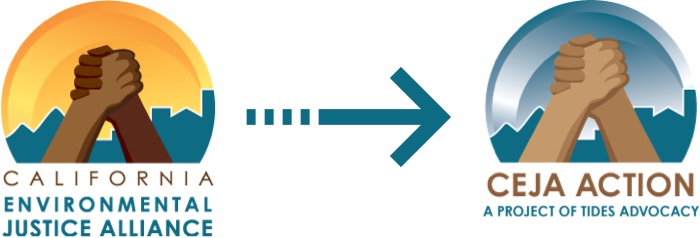Environmental Justice Advocates Call for Focus on Equity in Climate Policy
California climate policy needs to put pollution reduction first through strong regulatory measures and a targeted spending plan directed at low-income communities and communities of color. The state failed to approve the Senate’s spending plan for climate auction revenues in the recently released budget, while discussions of a potential compromise with Big Oil that could weaken pollution reduction policies in order to secure a two-thirds vote has heated up. A two-thirds vote would assure funding for high speed rail.
Here are four critical steps for the state to ensure equitable, effective climate programs:
- Pass the Senate’s spending plan for the climate revenues already in the bank, with an emphasis on spending in disadvantaged communities and low-income Californians.
- Pass SB 32 (Pavley) and AB 197 (E. Garcia), two majority vote bills that focus on reducing emissions, will create greater transparency in how the state implements climate policy, and will re-focus climate policy on achieving pollution reductions.
- Do not compromise with Big Oil on a two thirds bill that would negotiate away key environmental protections and send the state’s climate change policies backwards.
- Reassess the market design of California climate policy to ensure that state has a price on greenhouse gases that better reflects the social cost of carbon and limits ineffective policies such as offsets and trading.
Advocates also pointed to a new bill, AB 197 by Assembly Member Eduardo Garcia, that was recently amended to include changes at the California Air Resources Board that would result in stronger climate policies. AB 197 initiates changes in terms and governance on the Air Resources Board, including setting six-year terms for board members, and requires the Board to consider adopting measures to that result in direct reductions from major stationary source polluters and from tailpipes, which account for almost 40% of all GHG emissions. They also urged quick passage of Senator Pavley’s SB 32, which would place limits on greenhouse gas emissions to 2030 and these limits are needed for the stability of California’s climate program. Advocates attributed the recent failure of California cap and trade auction to design flaws in the cap and trade system that need to be addressed.
Statements:
“As organizations that work directly with community groups that are being hit first and worst by climate change and are already struggling with severe health issues as a result of air pollution, California climate policy must focus on directly reducing greenhouse gases and improving air quality to address related public health issues. These are the linchpins of California climate policy and the keys to stopping climate change and addressing the environmental health crisis in communities of color.” – Amy Vanderwarker, Co-Director with the California Environmental Justice Alliance
At the same time, advocates called upon the Governor to pass a spending plan to invest existing climate revenues immediately. “An immediate step to address climate change that the Administration can take is spending the $1.4 billion in cap and trade revenues that is in the bank. To hold the spending plan for the second year in a row is to prevent projects that will help California meet our climate change goals and improve the quality of life in low-income communities and communities of color from moving forward.” – Veronica Garibay, Co-Executive Director with Leadership Counsel for Justice and Accountability
“AB 197 and SB 32 represent two important steps forward that California could take, without negotiating major compromises that undermine the overall integrity of our climate change and air quality programs. The legislature should focus on passing these bills on a majority vote instead of pushing through a deal with Big Oil that could sell out critical climate policies.” – Miya Yoshitani, Executive Director of the Asian Pacific Environmental Network
“We have some serious policy issues that we need to grapple with as a state if we want to have a long-term, effective and equitable climate change program. We need to reevaluate the price on carbon, which is extremely low. We need to take out flawed elements like offsets, trading and the abundance of allowances that create a glut of credits and give big polluters loopholes to avoid reducing emissions. It is time to have a serious conversation about these issues, rather than push through a deal with the devil.” – Sofia Parino, Assistant Director at Center on Race, Poverty & the Environment

